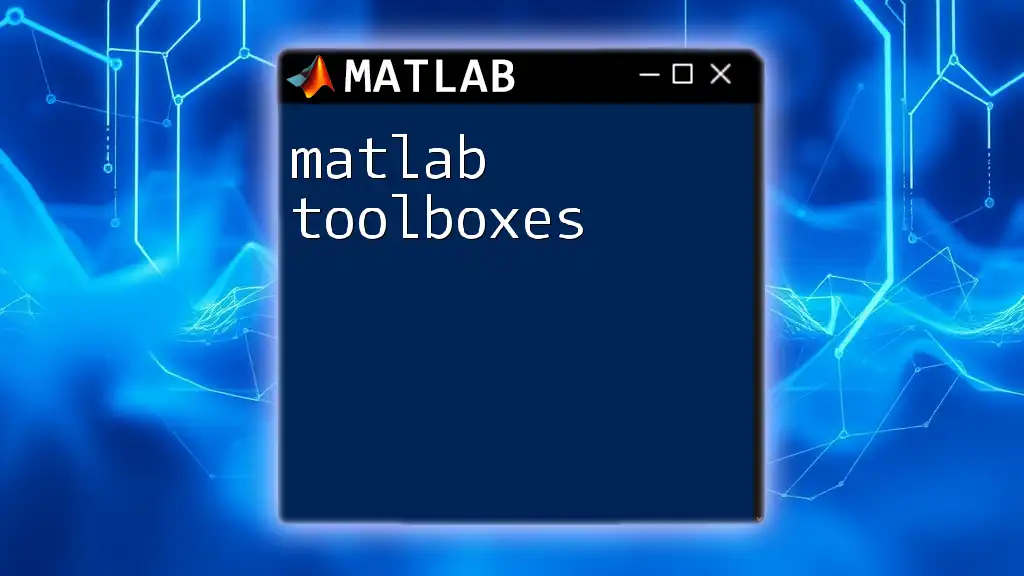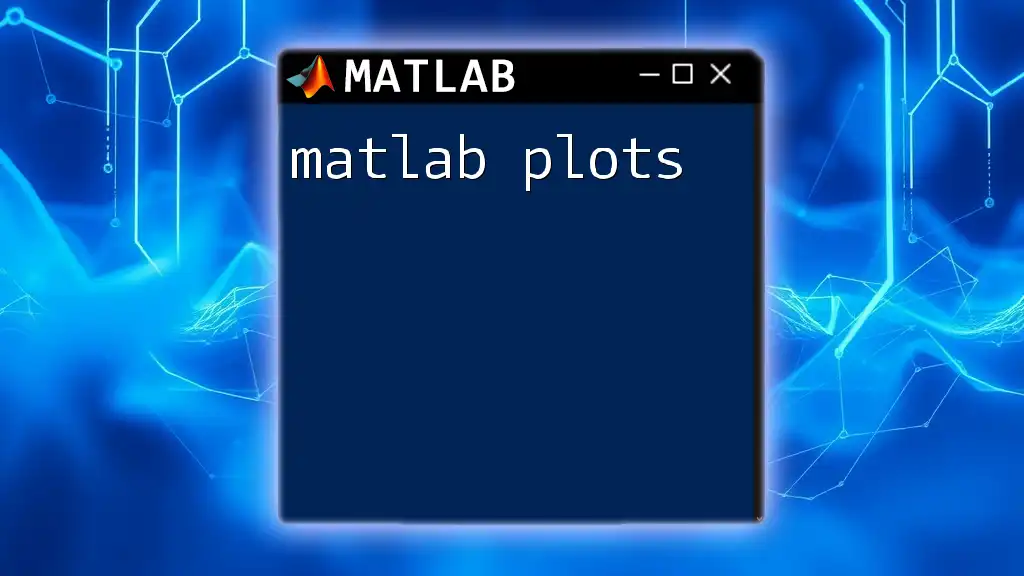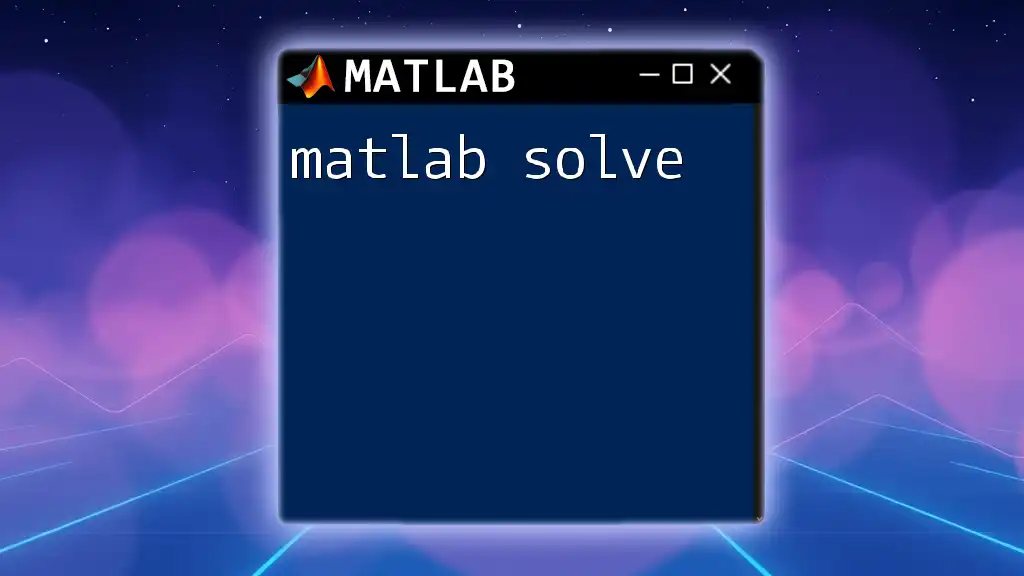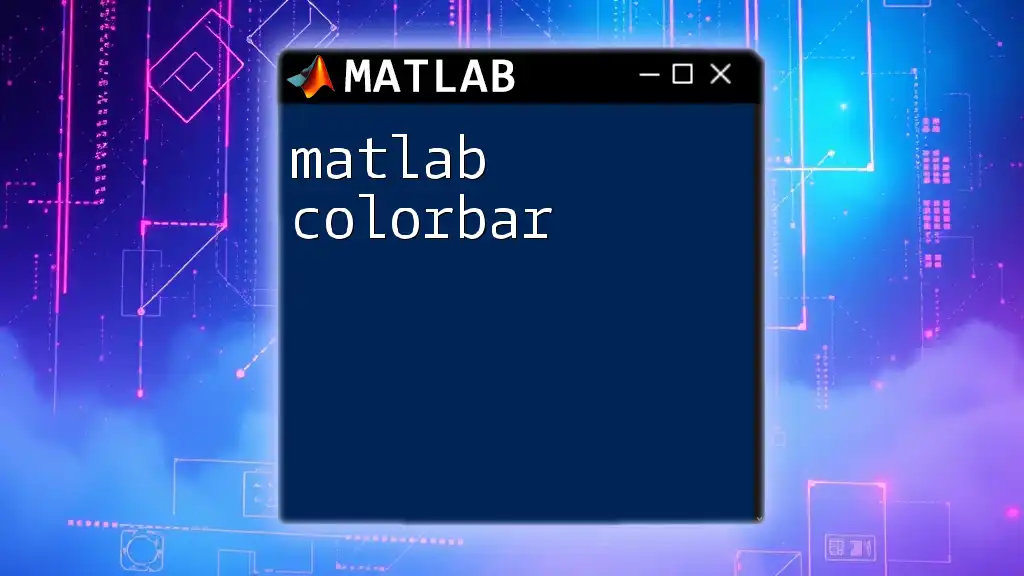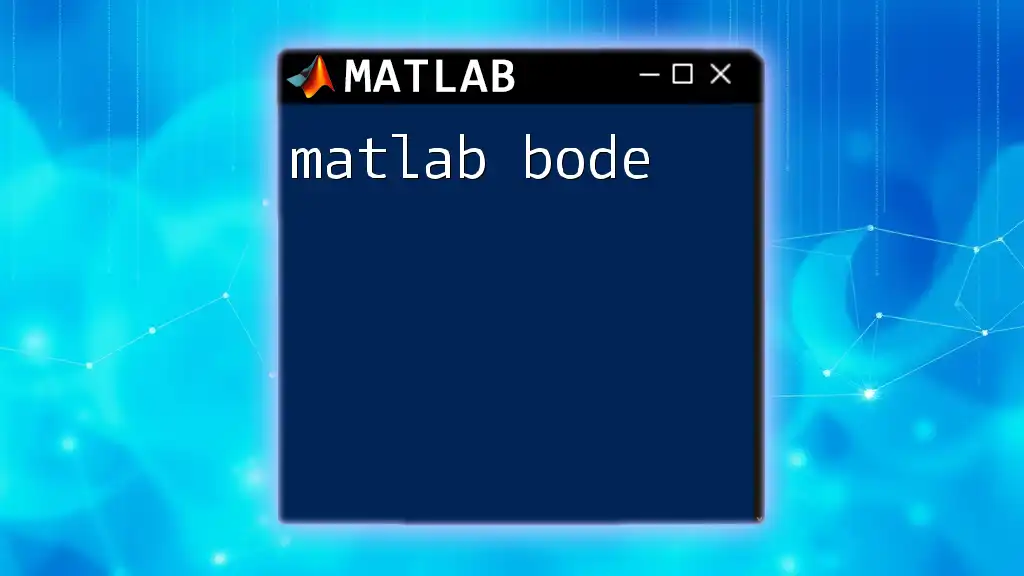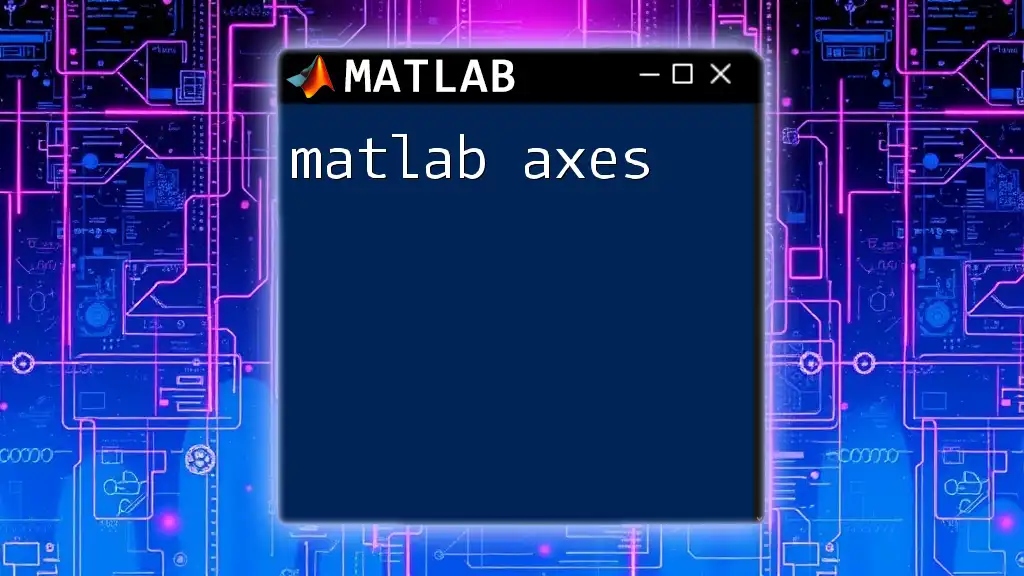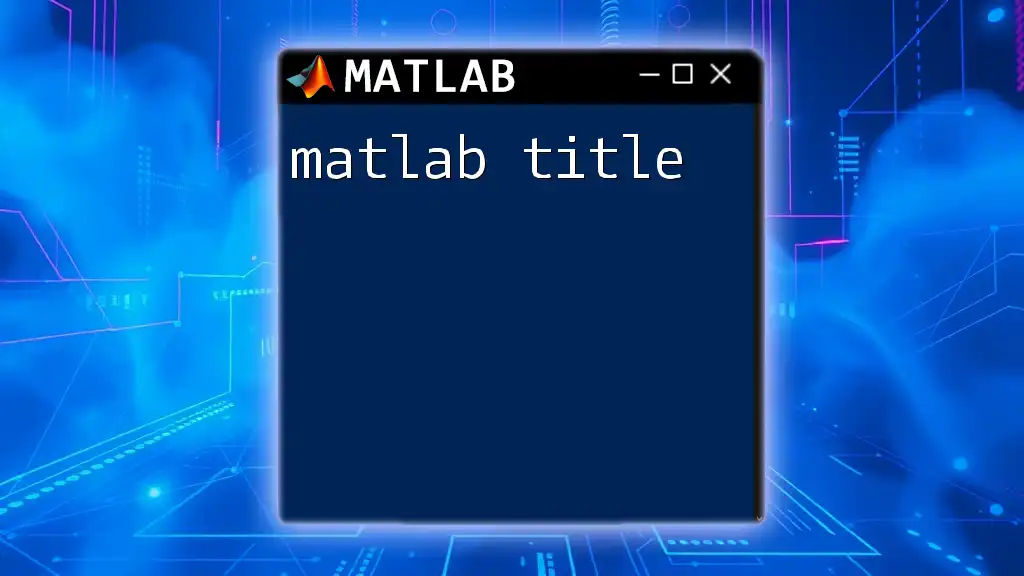MATLAB toolboxes are specialized sets of functions that extend MATLAB's capabilities for specific applications, such as signal processing, statistics, or machine learning.
Here's a simple example of using the Signal Processing Toolbox to design a low-pass filter:
% Design a low-pass filter using the Butterworth method
[b, a] = butter(4, 0.5); % 4th order, normalized cutoff frequency at 0.5
What are MATLAB Toolboxes?
MATLAB toolboxes are specialized packages that extend the functionality of MATLAB for particular applications. Each toolbox contains a set of functions, tools, and documentation designed to facilitate specific tasks in various fields, such as engineering, data analysis, and machine learning. These toolboxes allow users to leverage pre-built algorithms and functions, significantly speeding up the development process and improving efficiency.
The need for toolboxes arises from the limitations of base MATLAB, which, while powerful, cannot cater to every niche application. Toolboxes fill this gap by providing tailored solutions for specific needs, enabling users to solve complex problems without having to code everything from scratch.

Types of MATLAB Toolboxes
General Toolboxes
Signal Processing Toolbox
The Signal Processing Toolbox is crucial for engineers and researchers in the field of communication, audio processing, and biomedical signals. It provides tools for analyzing and designing signal processing systems.
An example of its application is filtering a noisy signal. Here’s how you can achieve low-pass filtering using the toolbox:
% Code snippet: Basic low-pass filtering
fs = 1000; % Sampling frequency
t = 0:1/fs:1; % Time vector
x = sin(2*pi*50*t) + randn(size(t))*0.5; % Noisy signal
y = lowpass(x, 100, fs); % Low-pass filter
plot(t, x, 'r', t, y, 'b'); % Plotting results
In this example, a sine wave is corrupted by noise, and the low-pass filter removes the higher frequency noise components, yielding a cleaner signal.
Image Processing Toolbox
The Image Processing Toolbox is essential for anyone working with images and visual data. It contains algorithms and tools to perform image analysis, filtering, enhancement, and geometric transformations.
For instance, here's how to adjust the contrast of an image:
% Code snippet: Adjusting image contrast
img = imread('example.jpg'); % Load image
img_enhanced = imadjust(img); % Enhance contrast
imshowpair(img, img_enhanced, 'montage'); % Show before and after
This code reads an image, enhances its contrast, and displays the results, demonstrating the toolbox's capability to manipulate visual data impressively.
Specialized Toolboxes
Statistics and Machine Learning Toolbox
If you’re involved in data science or any statistical research, the Statistics and Machine Learning Toolbox is invaluable. It provides functions for statistical analysis, data fitting, and machine learning algorithms.
A common application is creating a simple linear regression model:
% Code snippet: Linear regression example
data = load('datafile.mat'); % Loading dataset
mdl = fitlm(data.X, data.Y); % Fit linear model
disp(mdl); % Display the model summary
This code snippet fits a linear model to a dataset, which can be a crucial step in predictive analytics.
Control System Toolbox
The Control System Toolbox aids in modeling, analyzing, and designing control systems. It's widely used in engineering fields.
Here's an example of designing a PID controller:
% Code snippet: Designing a PID Controller
s = tf('s'); % Define transfer function variable
G = 1/(s^2 + 10*s + 20); % Define system
C = pid(1, 1, 1); % PID controller
closed_loop_system = feedback(C*G, 1); % Closed-loop system
step(closed_loop_system); % Step response
In this example, a PID controller is designed for a simple second-order system, demonstrating the toolbox’s power in control system design.

Installing and Managing MATLAB Toolboxes
How to Install Toolboxes
Installing MATLAB toolboxes is straightforward. Users can go through the Add-On Explorer in MATLAB, search for the desired toolbox, and click install. License considerations must be taken into account, as some toolboxes require separate licenses.
Managing Toolboxes
To check which toolboxes are installed, you can use the following command:
% Code snippet: Checking installed toolboxes
ver; % Lists all installed toolboxes
This command provides a list of all installed toolboxes, along with their version information.
Updates and removals can also be managed via the Add-On Explorer, ensuring users always have the latest tools at their disposal.

Custom Toolboxes
Creating Your Own Toolbox
Creating a custom toolbox can be beneficial when users have specific functions or algorithms they frequently employ. A custom toolbox can bundle these functionalities, making them readily accessible.
To create your toolbox, structure it into several directories, include functions, and provide documentation. This organization not only helps you in your projects but also simplifies sharing with colleagues.
Sharing Toolboxes
Once a toolbox is created, sharing it involves packaging it using MATLAB’s toolbox packaging tools, which assist in assembling all necessary files and documentation, making it easy for others to install and use.
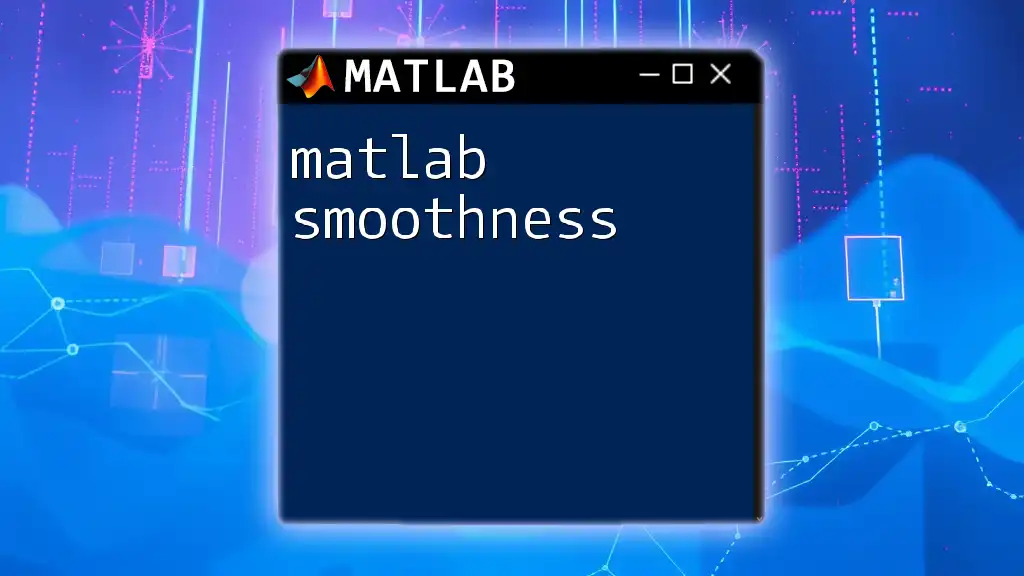
Best Practices for Using Toolboxes
Selecting the Right Toolbox
When faced with multiple toolboxes accomplishing similar tasks, it is vital to choose one based on your project needs, compatibility, and performance. Considerations like computational efficiency and functionality are essential in making your decision.
Performance Considerations
When utilizing toolboxes, always strive for optimized code. Familiarize yourself with the functions within the toolbox and understand their computational limits. This understanding helps prevent bottlenecks and enhances performance.

Conclusion
The elegance of MATLAB toolboxes lies in their ability to streamline complex tasks, allowing users to focus on analysis and problem-solving rather than implementation details. With a wide range of specialized toolboxes available, there's a solution for nearly every challenge faced in research and engineering. Exploring these resources can vastly improve your productivity and broaden your analytical capabilities.
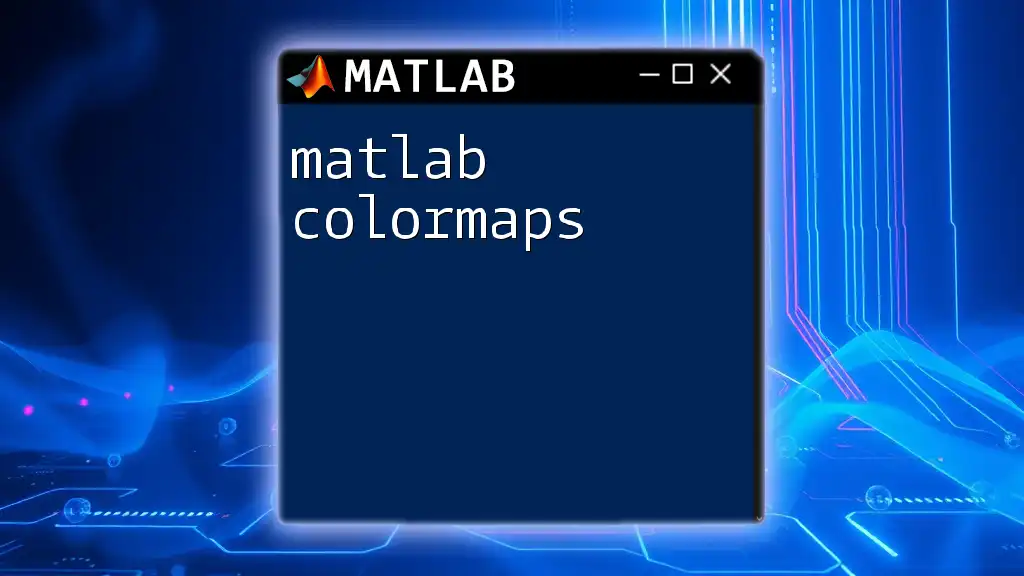
Frequently Asked Questions (FAQs)
What MATLAB toolboxes do I need for Data Analysis?
Data Analysis often benefits from the Statistics and Machine Learning Toolbox for predictive modeling and the Signal Processing Toolbox for data manipulation.
Are all MATLAB toolboxes free?
No, while some toolboxes may come with a base MATLAB license, many require separate licenses.
How can I find out what toolboxes are installed on my version of MATLAB?
Use the `ver` command to list all installed toolboxes along with their details.
Can I use multiple toolboxes together?
Absolutely! Many MATLAB toolboxes are designed to work in conjunction with one another, allowing for a comprehensive approach to problem-solving.
Where can I find additional examples and documentation for toolboxes?
The official MATLAB documentation provides extensive resources, including tutorials and code examples, perfect for expanding your toolbox knowledge.
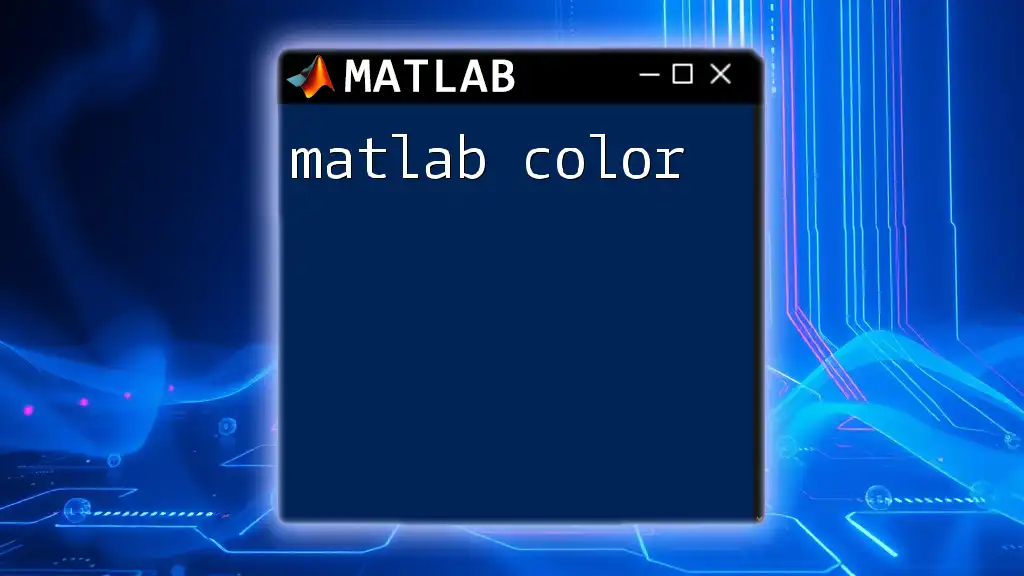
Additional Resources
For further learning, consider exploring the official MATLAB toolbox documentation, community forums, and recommended books or online courses that delve deeper into MATLAB and its rich set of toolboxes.

